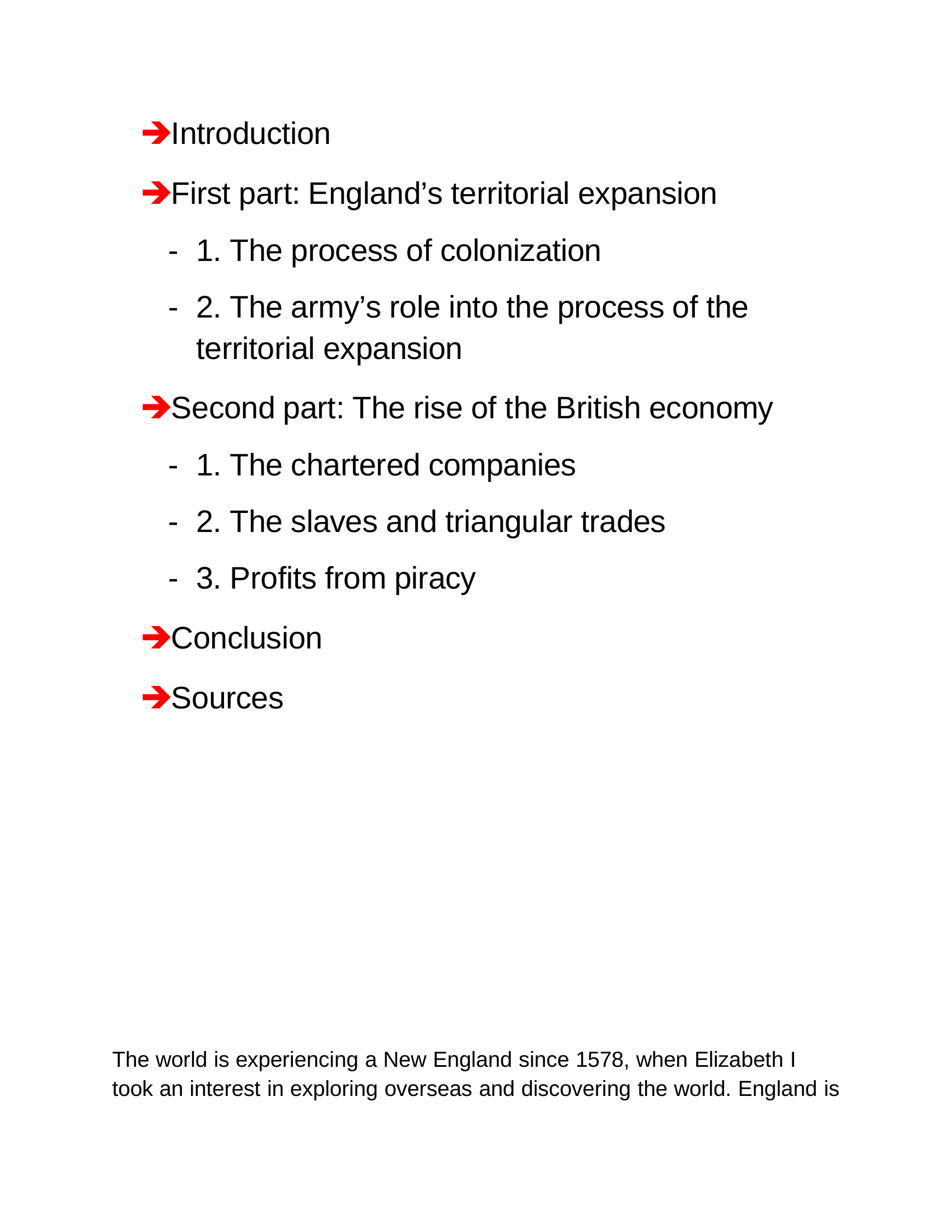england in the seventeenth
Publié le 29/03/2015

Extrait du document
«
Introduction
First part: England’s territorial expansion
- 1.
The process of colonization
- 2.
The army’s role into the process of the
territorial expansion
Second part: The rise of the British economy
- 1.
The chartered companies
- 2.
The slaves and triangular trades
- 3.
Profits from piracy
Conclusion
Sources
The world is experiencing a New England since 1578, when Elizabeth I
took an interest in exploring overseas and discovering the world.
England is.
»
↓↓↓ APERÇU DU DOCUMENT ↓↓↓
Liens utiles
- Ne pas confondre Grande Bretagne et Royaume Uni Great Britain Great Britain is made up of: England - The capital is London.
- John Winthrop: "A City Upon a Hill" In 1629 English attorney and Puritan John Winthrop was chosen by the Massachusetts Bay Company, an English trading firm, to govern its colony in New England.
- Robert Frost I INTRODUCTION Robert Frost Usually set amid the natural beauty of rural New England, the concise, direct poetry of American poet Robert Frost conveys a wide range of emotions.
- John Milton I INTRODUCTION John Milton Seventeenth-century writer John Milton ranks as one of the greatest poets in the history of English literature.
- English Literature I INTRODUCTION English Literature, literature produced in England, from the introduction of Old English by the Anglo-Saxons in the 5th century to the present.


